In recent years, more and more high-tech greenhouses have been realized in China, and the use of high-end techniques has become more common in the Chinese market. Whether it is for planting, for the greenhouse or for the management, more growers opt for automation and quite often turn to Dutch solutions. Since 2002, Beijing Ruixue Global Co., LTD. has helped bring these technologies to China. Their president, Huang Ruiqing, explains how the industry could optimize the use of these techniques.
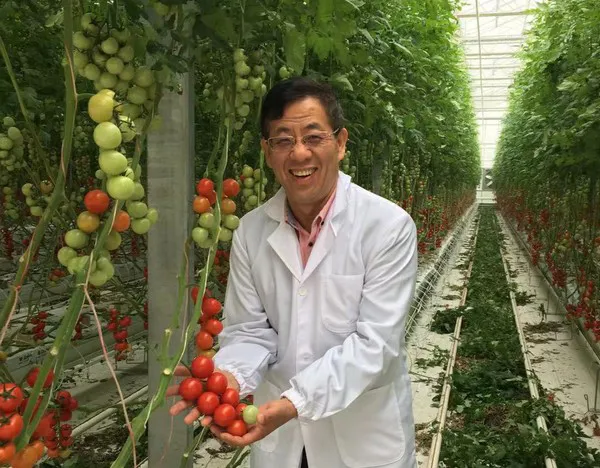
All-round providers
Back in 2002, Ruixue Global was one of the first all-round horticultural providers in China. The company builds a bridge between Dutch technologies and the Chinese industries and can offer tailor-made greenhouse solutions. "We want to be the one-stop shop for horticultural services", Huang says. "We focus on smart greenhouses and can help customers starting from the design of their facility. This way we want to help our domestic and foreign customers find the highest yield possible in the horticultural industry."
However, reaching this highest yield possible is a challenge to Chinese growers. "Currently the total area of Venlo greenhouses in China is about a thousand hectares, and an additional area of 200 hectares is added each year", Huang says. "Yet our domestic horticultural production in these greenhouses cannot yet reach the output and production level of the same type of greenhouses in the Netherlands. This is a matter of production efficiency, and we cannot help wondering what causes this gap between China and the Netherlands."
According to Huang, the reasons for this gap could be diverse. "The industrial chain, the production processes, the availability of trained people in the greenhouse and in the management levels, market operations, and many other factors. You can introduce a Dutch model, but it is difficult to successfully replicate the complete system in a short period of time. It takes a certain period of time to create a development model suitable for modern horticulture in China."
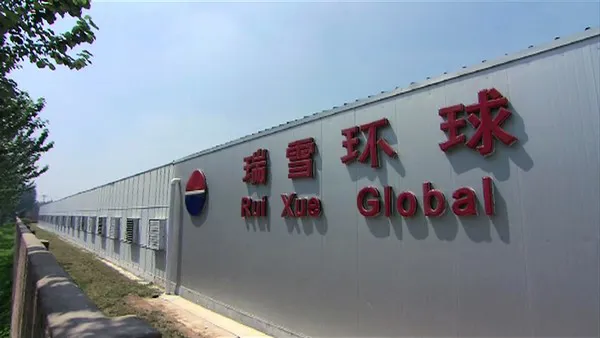
Specialization
Yet he is sure there are opportunities to systematically improve the overall level of China's greenhouse horticulture industry. First, specialization, both in production and in the products. "Taking the Dutch industry as an example, there are separate companies responsible for greenhouse construction, propagating, growing, and processing of the materials", he sums up. "Also the sales of the produce and the marketing is a separate activity. Nowadays most Chinese horticultural companies need to handle all aspects by themselves, which results in that them spending a lot of time and energy on research, consulting and comparing of the available techniques. This costs manpower and resources, which means the focus is not fully on the production." Therefore he believes improving the structure of the horticultural chain, improving the service system, and creating a professional management team focused on growing can effectively improve the level of greenhouse management and the efficiency level and production of the company. "That's important to create a climate for profit."
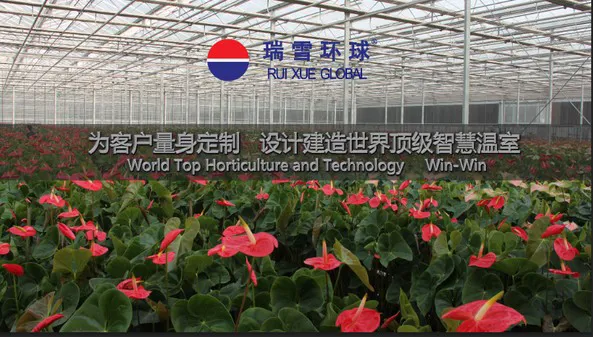
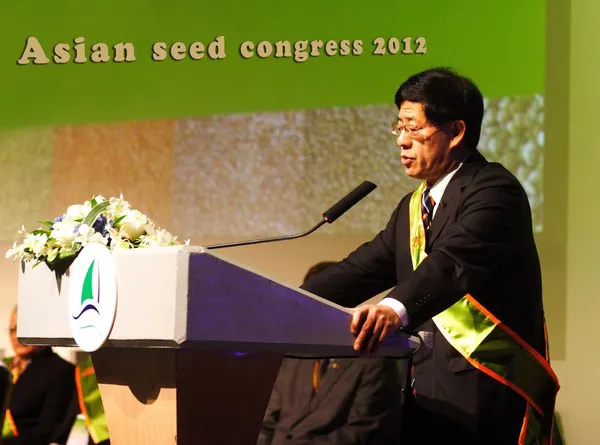
Standardization
As a second point, Huang mentions the need for standardization. "Standardized processes and standardized products", he says. "What we can learn from the Netherlands is how they formulated and implemented product and production standards to guarantee a stable product quality. We currently deal with unstable production processes, since growers deal with different employees and there are no standardized operations. The result is an unstable quality of the production." He explains “there are no professional standards for agricultural product and price and most consumers cannot recognize the high quality and low quality products due to lack of standardization for agricultural products, especially for the high-end agricultural market, represented by the greenhouse industry. Setting these standards is important to improve the level of the industry and again also the profitability of the enterprises. The higher quality products should get higher price in the market”.
Large-scaling
Chinese projects need to be more large scale – Huang explains how this is also of vital importance to have a profitable company. "Most Dutch companies use intensive, large-scale production. This means high-input and high-output. The profitability of a Venlo greenhouse is based on certain scale and I believe that when the acreage exceeds 4 hectares, this will increase the total investment but reduce the capital investment needed per produced unit. You make more optimal use of capital, personnel, human resources - all of that - and that makes it a way to improve the efficiency and speed up the return on investment cycle."
Market
As a last point, Huang points out how the market plays an important role in the development of the industry, and that the market system need to be changed. "In the Netherlands, growers grow their produce based on market demand or, in the case of flowers, via the flower auction. In China the production and the market are not connected, meaning that selling your high-end produce is not evident. The fact that there is no complete market operation system suitable for these products is a challenge to the market."
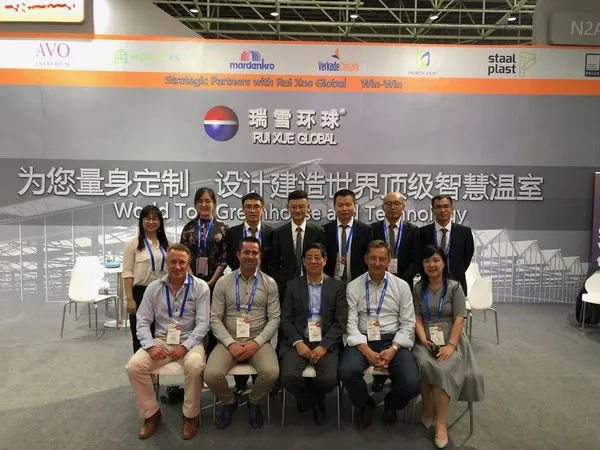
Working with partners from Dutch horticulture
Modernization of China
"These four modernization topics come from the successful experience of Dutch horticulture", Huang concludes. Ruixue Global has worked together closely with the industry. They maintain close relationships with companies such as Verkade, Mardenkro, HortiXS, Horticoop, Priva, NPI, Staal & Plast and more partners and have seen the challenges in bringing their techniques, products and equipment to the Chinese market in order to upgrade them. "We have been practicing intensively and hope to lead the Chinese horticultural industry to achieve their innovation goals", he says and tells how the company built a 4 hectare farm with Dutch greenhouse in Beijing themselves to grow produce and to show the possibilities of Dutch greenhouse design, equipments and management. Since it was built, it was visited by many colleagues, research institutes, governments and companies.
"We also use this facility to introduce the techniques to the Chinese market and educate workers and managers in the industry. And we show them the possibilities of propagating. That's how we also try to contribute to the development of the industry."
For more information:
Prof. Huang Ruiqing Ph.D
Beijing Ruixue Global Co., LTD.
Telephone:
+86 13601314311
+86 10-82896298
E-mail: [email protected]
